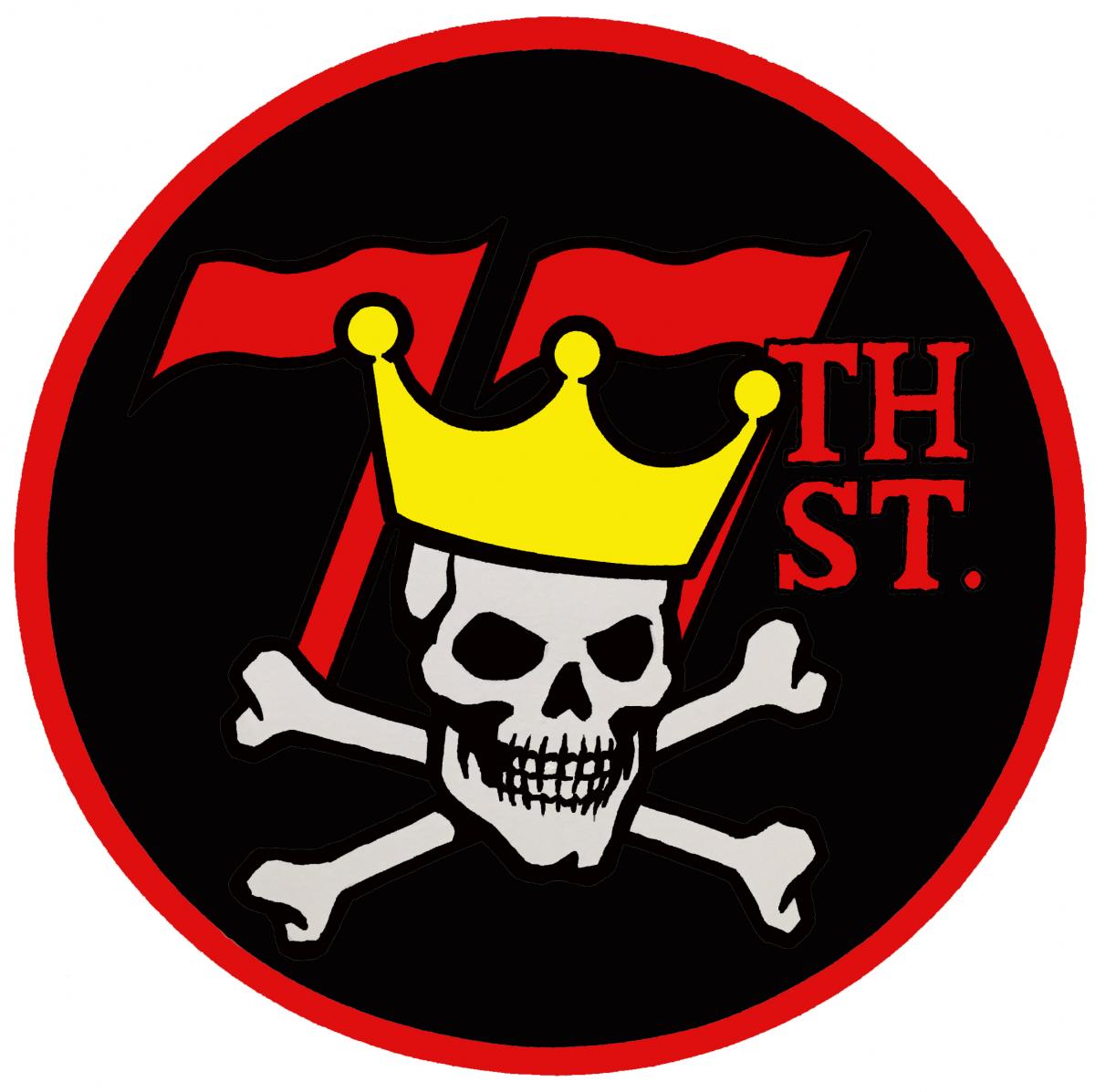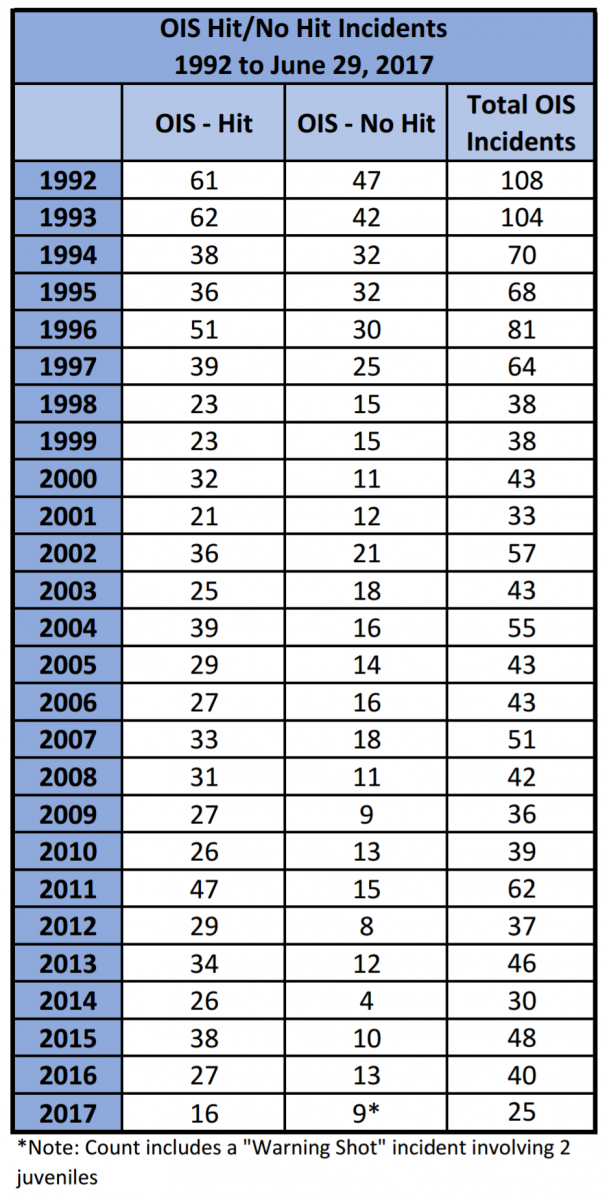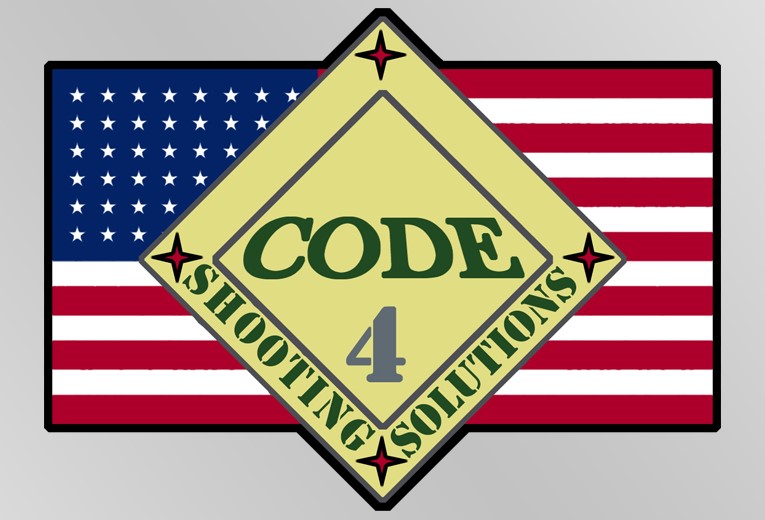Title
Watch your six - August 2017

Body
“Tis the season”
It’s August, and we are well into the “killing season” of 2017 (not my quote). Ah, summer in Los Angeles—baseball, tourists and the senseless gang killings that most Angelenos have grown accustomed to. Having it rain would leave most of us shocked and cause us to walk outside, then stare at the sky in awe. Having two or three people gunned down in a “drive-by” would “just barely” make the L.A. Times, unless another young child was caught in the crossfire; otherwise, most L.A. coppers would respond, “Uh, yeah, did the Dodgers win?” With the “killing season” in full swing, we can accurately predict the LAPD will be involved somehow in three separate phases, “before, during or after.” Sometimes the City of Angels forgets we must clean up the mess for the “after” phase. Vivid detail isn’t needed here. I will let some first responders describe it to you themselves. The chaos and pain that follows one of these senseless murders is something that cannot be written or played out in a movie with sight, sound, smell and nausea in your gut. To attempt to describe it would not do it justice, and if you haven’t experienced it, just be thankful. It is what nightmares are made of.

Is this “killing season” different than it was in the dark days of Los Angeles? Could the homicide rate decline by 800 souls make any difference to a mother who lost her only child? “The police should be reflective of the community they serve.” Sound familiar? Would a less violent society cause the police to have fewer violent confrontations? As crime steadily rises year by year, should we worry about our stellar reputation or try to enforce the law?

L.A.’s past doesn’t even compare in numbers. During the ’80s to mid-’90s, the “killing season” started Jan. 1 and ended Dec. 31. The homicide rate in 2016 of 294 lives lost may be high, but to put things in perspective, in 1992, just 77th Street and Rampart Divisions combined had a higher homicide total than the whole city in 2016. Los Angeles chalked up 1,092 “deliberate and unlawful killing(s) of one person by another.” (Add an additional 1,500 for L.A. County). Yes, the battle of Los Angeles was on, and everyone was fighting over a “product.” I lay the blame on the consumers who desperately wanted it and weren’t directly affected by the violence. And who was “stuck in the middle again?” You guessed it, us.
The “before” phase of the above described violence, in theory, is the LAPD and the community working together hand-in-hand to keep neighborhoods safe, to find solutions and to keep an open dialogue between us and the community. Transparency and open communications! It’s mostly explaining why we do what we do and asking how we can do it better.
The “during” phase is most concerning and potentially the most dangerous. I do believe our officers receive the best training in the country at our Academy. How is the training after? It’s mostly “OJT” (on the job), right? “Good luck, son, don’t shoot your eye out!” Do a few LAPD units or special assignments receive better or additional consistent training, more than the average officer out there? Absolutely! Do I feel the officers who are most likely to be in a violent confrontation while dealing with a domestic violence, a 5150 call, 211 in progress, an unknown trouble, a shooting in progress and/or the possibility of being ambushed are not receiving the training with the consistency they deserve? That’s a fact! And who are the most scrutinized? The weight of the entire City, from the Mayor to the watch commander, is placed directly upon the shoulders of the coppers with the least amount of consistent “reality-based” training. And they wonder why we are not at that “100 percent customer satisfaction rating” on Yelp! Like most professional athletes, it’s better to have practice after the big game. It makes the game film so much more interesting on “what you should have done.” Do I feel it’s going to come back to bite us soon? Unfortunately, yes. But don’t worry, everybody who is anybody will show up, bow and shake their heads and mumble, “This is awful, how did this happen?” You have that going for you.

What can we do about it? Start by being available and/or making a conscious effort to attend those training days afforded to us by the Department. It’s not much, but it’s better than nothing. A tri-athlete once told me, “You don’t have to train every day, but sitting around eating potato chips and guzzling soda all day definitely isn’t going to help.” Also, try to “qualify” early. Waiting until the last week and wondering why the line is around the block just causes stress. Did you know you can “qualify” more than once? You can “shoot” all day if you want. Just bring the ammo. Nobody would ever question that you would like more training. I completely understand that trying to get our basic qualification in “on duty” is like playing the lottery, and we are made to feel guilty just for asking. We are being asked to do more with less. Some assignments have their “shooting” (qualify) days already in place, others simply go shoot and have a nice lunch. In most patrol divisions, you have a better chance of getting permission to shoot at the pigeons in the parking lot with your pistol than to go “qualify” on duty.

Once, maybe twice a year, we have a divisional training day. That’s when the wheels fall off. I believe I’ve heard it all by now. From the hard-charging PII who is so excited to have a day shooting/training and hanging out at the range with his peers, “Sir, I can’t wait for Thursday! I’m bringing a new holster to break in!” To the folks who state, “Do I have to go? I don’t have the five bucks for range fees.” How do I respond to that? Should I remind them of the danger they may face? Should I rattle off every shooting cliché and metaphor I can think of? Or should I shake my head and simply state, “Here’s your soda and chips.”
Invest in yourself. Just because the Department doesn’t issue it to you doesn’t mean you won’t need it. Invest in your family, your friends and your peers. If you think you’re behind the power curve in training, do something about it. If there is one thing I have learned over the years, it is that the LAPD isn’t as all-knowing as it appears. The best of the best ideas have been borrowed (stolen) from someone else, and we put our name on it. A training order titled “From the desk of the Chief of Police, City of Los Angeles” reads slightly better than “From Doug, of the French Lick Police Department, Indiana.” Just saying. Whose idea was it, and who will get credit? Sorry, Doug, or some PII after returning from his third combat tour in Afghanistan, who typed a 15.7 (memo) about an idea he received from a British soldier causing a captain to drive Code 3 to PAB and say, “Hey Chief, look at my great idea!” There are plenty of outstanding schools, seminars and symposiums out there, maybe even one by that British soldier. Unfortunately, you must make that investment yourself until you find yourself in a unit or assignment where perishable skills are sharpened and the training is consistent. I’m willing to bet that every single person in a prestigious position on our Department made some sort of investment or sacrifice to better themselves.
Be forever the student and don’t expect anything but the basics from your employer. The powers that be are rolling the dice and praying snake eyes won’t show. It is all about money and deployment, and until you’re deemed special, you’re just a number. Unfortunately, survival and success may be up to you. You won’t be the first to have to do it.
Be safe out there.
If you have questions, feel free to email me at [email protected].









